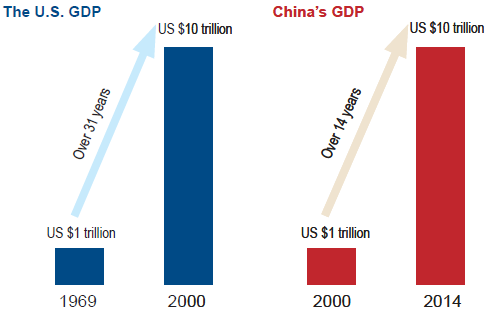Chinese Wisdom in Global Economic and Trade Rules
China Today,May 28, 2018 Adjust font size:
Economic Globalization Prompts Global Governance
“Global governance issues were highlighted against the backdrop of deepening economic globalization and pressing global issues, which, in various forms, could only be solved through joint efforts of all countries,” remarked Zhang Yuyan, director of the Institute of Economic and Political Research, Chinese Academy of Social Sciences.
In her opinion, trade protectionism and game theory regarding benefits among countries boost the formation and evolution of trade rules, while the evolution of patterns of global production and trade accelerates the adjustment of international trade rules and their coverage.

According to Zhang, China’s participation in global governance began in 1971 when the People’s Republic of China resumed its legitimate seat in the United Nations. However, it has been a painstaking process for the country to integrate into the global economy and play a role in global governance.
In the 1990s, China participated in international affairs in a broader scope, in the context of deepening domestic reform and opening-up, and a changing global landscape. When the Asian financial crisis broke out in 1998, China played a constructive role in steering the Asian economy out of crisis, displaying its confidence and responsibility as a major country in the region by participating in regional and global governance.
Entering the 21st century, with a growing economy and overall strength, China became more proactive towards global governance. China’s entry into the WTO in 2001 was a milestone, marking its integration into the world economy.
In 2008, when the global financial crisis broke out, G20 was pushed to the frontline as the major platform of global governance, and China naturally became one of the most important and the most active members of the platform.
In 2013, Chinese President Xi Jinping proposed the Belt and Road Initiative, bringing new vitality to global governance. In 2014, China advocated setting up the Asian Infrastructure Investment Bank (AIIB), regarded as equally historic as China’s entry into the WTO. In 2016, at the G20 Hangzhou Summit, China stated its plan to cope with global economic challenges and made the appeal to claim power of discourse and rule-making for developing countries and emerging economies.

